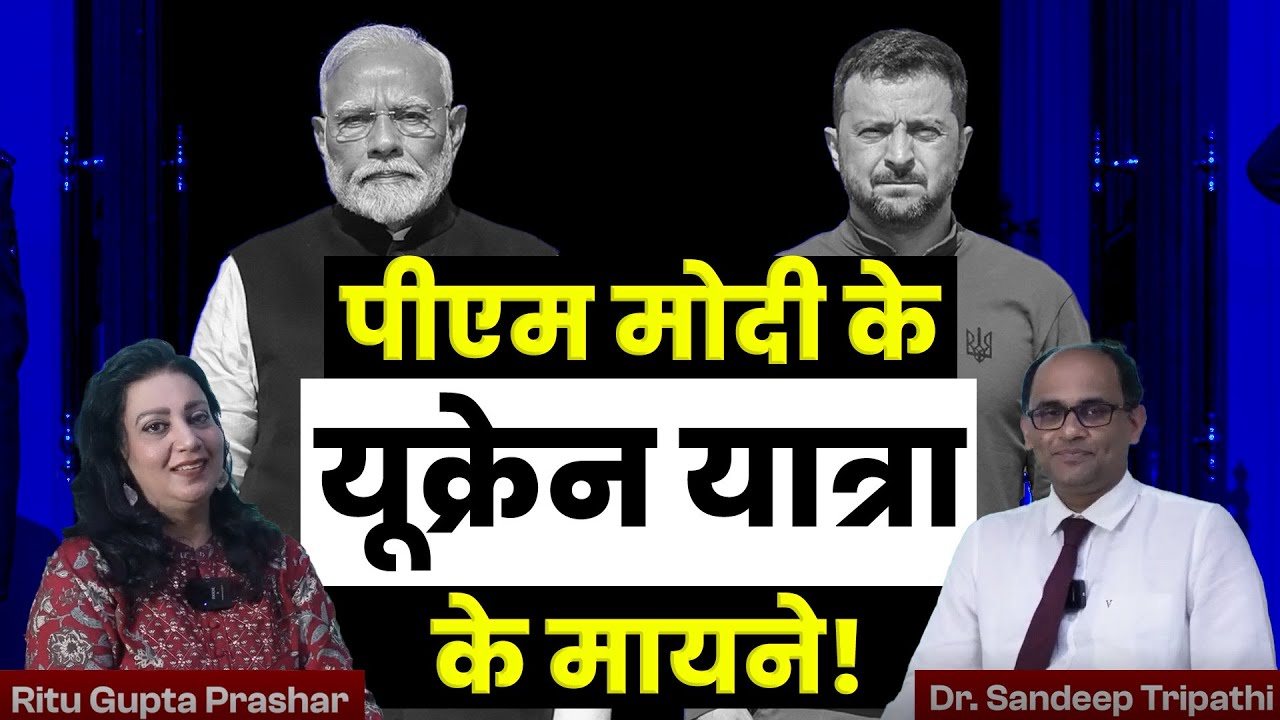Title: India as a Peacemaker in a Polarized World
Date: August 2024
Host: Forum for Global Studies
Guest Speaker: Ritu Gupta Prashar
Moderator: Forum for Global Studies Podcast Team
Overview
The Forum for Global Studies hosted an exclusive podcast featuring Ritu Gupta Parashar, a leading journalist and prominent voice in Indian media. The discussion revolved around India’s rising global status, its unique diplomatic approach, and the role of Prime Minister Narendra Modi in promoting peace amidst global conflicts.
Key Highlights:
India’s Global Leadership:
Ritu Gupta Parashar emphasized that Prime Minister Narendra Modi, as the leader of the world’s largest democracy, has taken substantial and impactful steps in addressing global conflicts by advocating for peaceful resolutions through dialogue rather than taking sides. She underscored Modi’s consistent approach to fostering diplomacy and encouraging
nations to engage in constructive conversation, rather than resorting to military intervention or confrontation.
Cultural Diplomacy:
The discussion noted that India’s rich cultural contributions, such as Yoga and Ayurveda, play a crucial role in strengthening its soft power globally. Ritu Gupta Prashar emphasized the respect that Indian culture commands in various nations and its potential to influence international relations positively.
Challenges of Polarization:
The current global landscape is characterized by polarization, with countries forming distinct groups. Ritu Gupta Prashar asserted that India’s diplomatic approach, which prioritizes neighborhood-first policies and seeks collaboration with neighbouring countries, positions India as a stabilizing force. Under PM Modi’s leadership, India has emerged as a key player in bridging divides, reinforcing its image as a “consensus-builder” on the world stage. Instead of aligning with polarized factions, India promotes negotiation and cooperation, offering a more balanced and peaceful framework for resolving disputes.
Perception of India:
Ritu recounted her experiences in the U.S., noting a shift in perception towards India since 2014. She shared how people now associate India with Modi’s leadership and a growing respect for Indian contributions on the global stage.Since PM Modi’s leadership, the
perception of India has evolved dramatically, with many in the U.S. and other Western countries now associating India with strength, innovation, and growing influence.
America’s Role in Global Conflicts:
The conversation touched upon the role of the United States in fueling conflicts worldwide, questioning its commitment to democracy and human rights while engaging in military interventions.
Promoting Peace:
The central theme of the discussion was India’s commitment to peace. Ritu reiterated that India does not promote war and instead advocates for peaceful resolutions. She highlighted Modi’s recent visits to conflict zones, emphasizing India’s role as a peace-promoting nation. India’s diplomatic efforts in global forums like the G20, where it has emerged as a voice for the Global South. India’s ability to mediate and build consensus in international disputes, leveraging its historical stance on non-alignment, has made it a respected player in global peacebuilding.
Eurocentric Dominance in Global Markets:
The narrative once dominated by Western powers, particularly the U.S. and Europe, is gradually being challenged by the rise of nations like India. It was observed that although products and cultural exports from the West, especially from the U.K. and U.S., have historically held dominance, there’s a growing recognition of the high-quality goods and services emerging from India. India’s emphasis on manufacturing and its branding as a global hub, through campaigns like “Make in India,” is a key aspect of this shift.
India’s Branding Initiatives:
Prime Minister Modi’s initiatives, such as “Invest in India” and “Make in India,” were presented as crucial for reshaping India’s image globally. Emphasis was placed on the role of branding as a component of soft power and its potential to influence global perceptions.A significant part of India’s consensus-building strategy lies in its effective use of soft power. Prime Minister Modi’s outreach to the Indian diaspora has played a crucial role in building India’s global presence. His regular interactions with overseas Indians, whether in the U.S., Europe, or other parts of the world, have helped strengthen India’s image internationally.
Cultural Comparisons
A prominent part of the event centered on contrasting the cultural values of India and Western nations, particularly in areas like social systems, spirituality, and family values. These comparisons highlighted how India’s unique approach to life, grounded in deep-rooted traditions, sets it apart from the more individualistic cultures of the West. This distinction is becoming increasingly important in shaping global perceptions of India.
The Shift in Youth Attitudes:
A key shift is emerging among Indian youth, who once sought opportunities in Western countries but are now increasingly valuing their own culture and country. PM Modi’s “Make in India” and “Invest in India” initiatives have sparked renewed pride, with many opting to build their futures in India. This reflects a broader global perception change, as India’s stable social systems, economic growth, and focus on collective well-being contrast with the social unrest and crises in the West. The Indian diaspora, once keen on Western assimilation, is now reconnecting with and embracing their Indian traditions.
Future Outlook for India:
A positive outlook was shared regarding India’s trajectory towards becoming a developed nation, bolstered by its youth’s creativity and the supportive government policies promoting self-sufficiency.
The potential for India to emerge as a strategic global player was underscored, with calls for a re-evaluation of global narratives.

